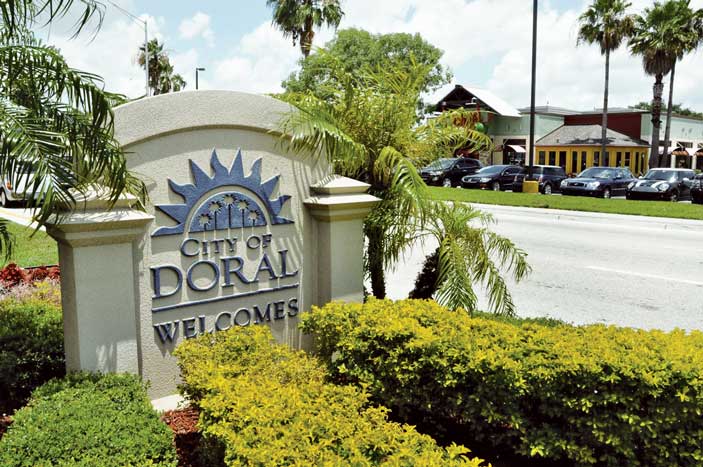
Last week, Facebook admitted what many of us had long suspected; Facebook has been turning over information on its users to local, state and federal government agencies. From June of 2012 to December of 2012, these agencies requested information on roughly 38,000 users for criminal investigations and intelligence gathering. It is alleged that criminal investigations made up the bulk of the requests, but since the Federal Government forbids companies from releasing the exact number of times these requests were made or fulfilled, it is difficult to substantiate. However, considering the sheer number of law enforcement agencies across the country, it is a reasonable assertion that they would make up the bulk of the requests.
At Kemp, Ruge & Green Law Group, we understand these types of reports set off “Big Brother Is Watching Me” alarms throughout our community. In spite of this, we invite everyone to take a deep breath and relax about your Facebook account. Sure, our request might be a little farfetched considering the trend of this past year: NSA Hacks, Wiki-leaks, and Where in the World is Eric Snowd-iego. Rest assured, the headlines do not paint the entire picture, especially when it comes to Facebook. In this post, we will discuss how Florida Law Enforcement is using Facebook in its investigations (perhaps, more importantly, how it is not using it), how Florida courts are responding to evidence obtained through Facebook (what legal safeguards are in place to protect you) and what you can do to prevent Facebook posts from getting you into trouble.
How Florida Law Enforcement Uses Facebook:
Despite what you may have heard, Florida law enforcement is not using Facebook like the Gestapo. Everyday people (especially college students) post pictures of underage drinking or illegal drug use and the police do not go breaking down their doors. In fact, as this list indicates, colleges and universities are far more likely to crack down on posts of this nature than police are.
However, there are certainly times when Florida law enforcement does take note of Facebook like in the case of Florida International University’s Pi Kappa Alpha frat. This frat went far beyond posting party pics; they began using Facebook to sell drugs. Some members actually referred to their frat as the “ Pike Pharmacy ” and would routinely post messages like this ““So I’ve sold out of 20mg addy,” [Adderall] “I have a few 10mg addy left. $5 a pop first come first serve.” When news of their nefarious dealings got out, Florida International University suspended the frat, but it still not certain that their members will face criminal charges. Most likely, some of the members will, but the fact that it has not already happened, shows that Florida law enforcement is not scouring Facebook to make flimsy arrests, as many people feared.
In addition to finding evidence on Facebook for ongoing criminal activity, law enforcement also uses it to gather evidence on crimes already committed. Consider Derek Medina , the Florida man who killed his wife, and then posted “I just killed my wife.” On the off chance, his “friends” did not believe him, he posted pictures of the corpse and a confession. Since Medina is likely to plead his actions were in self-defense, his Facebook posts will serve as strong evidence for the prosecution that his actions were not in self-defense. Although this example is somewhat graphic, several criminals make similar posts especially when it comes to posting with stolen merchandise: cars, jewelry, guns, etc. Overall, Florida law enforcement has done an admirable job in using Facebook in accordance with proper investigative techniques, and the reason why brings us to our next point.
How Florida Courts Handle Facebook:
First and foremost, understand that social media is not some freakishly difficult concept for the legal system to grasp. While changes in technology necessitate flexibility in the law, general principals still apply. Facebook accounts are still protected by the 4 th amendment (search and seizure). Without a warrant or probable cause, the police cannot generally use evidence obtained from you or your home.
The major difference between your Facebook account and your home has to do with expectation of privacy. The home is sacred. What you do in your home has a much greater expectation of privacy than what you post on your Facebook account. Why is that? Depending on your privacy settings, you could easily be posting to everyone, and thus, you are putting your evidence in the public arena. Once that happens, whatever information you broadcasted no longer falls under the protection of the 4 th amendment, because you no longer have an expectation of privacy. It is akin to the cop show cliché regarding going through a suspects trash after they put it out on the curb (for once, television got the law right).
At this point, one of you must be thinking, okay but what about when you turn your privacy settings to “only friends,” then I would have an expectation of privacy. Can Florida law enforcement gather evidence from my Facebook then? It is definitely a trickier issue than the previous one, because the United States has so many different jurisdictions. In some countries, such as the United Kingdom, they have worked to develop universal prosecutorial guidelines for social media to address issues like this. Unfortunately, in the United States, there is no definitive answer, so regardless of privacy settings, you would be putting yourself at risk. If we had to answer the question, this would be our best response:
If you are a prosecuting attorney, you’d argue that you have no expectation of privacy, because your friends are free to share whatever you are posting to whoever they choose. You are putting it in the public arena, albeit through a slight filter of “only friends,” but it is in that arena, nonetheless. However, if you are a defense attorney, you would argue the opposite. By turning your privacy setting to “only friends” you have created an expectation of privacy that should not be violated by Florida law enforcement.
How to avoid these problems:
Regardless of whether or not you committed a crime, do not post any questionable material on Facebook that might pique the interest of the law enforcement. Even if all you posted was hoax to get a few laughs, those laughs will abruptly end the moment authorities start to investigate you. Rather than view this advice as limiting your personality or expression, we invite you to look at it another way: “awk” or “away from keyboard.”
AWK is a common internet acronym used to supplant “IRL” or “in real life,” but it is more important for the way users of the term understand the internet. “IRL” implies a difference between the online world and the offline world. The offline world is real, full of laws and limits, but the online world is fantasy, no rules, no consequences. This perspective invites problems. AWK, on the other hand, implies the only real difference between the online world and the offline one is whether or not there is a keyboard in front of you. As such, your conduct in one world, should not deviate from another. Keeping this principle in mind will protect you from the lapses of judgment that other’s make on Facebook daily. If that does not work, before your next post, ask yourself “would I write what I’m about to post on a sign and wear it around my neck for the day?” If the answer’s no, by now you should know what to do next…
-
July 26, 2024
Car Accidents in The Villages, Florida -
July 26, 2024
Personal Injury Lawyer Fees in Doral, Florida -
July 26, 2024
Slip and Fall Cases in Doral, Florida -
July 26, 2024
Slip and Fall Incidents in Doral, Florida
Contact Us
About Your Case
We're ready to fight on your behalf. Request a free, no-risk consultation with our attorney's today.



